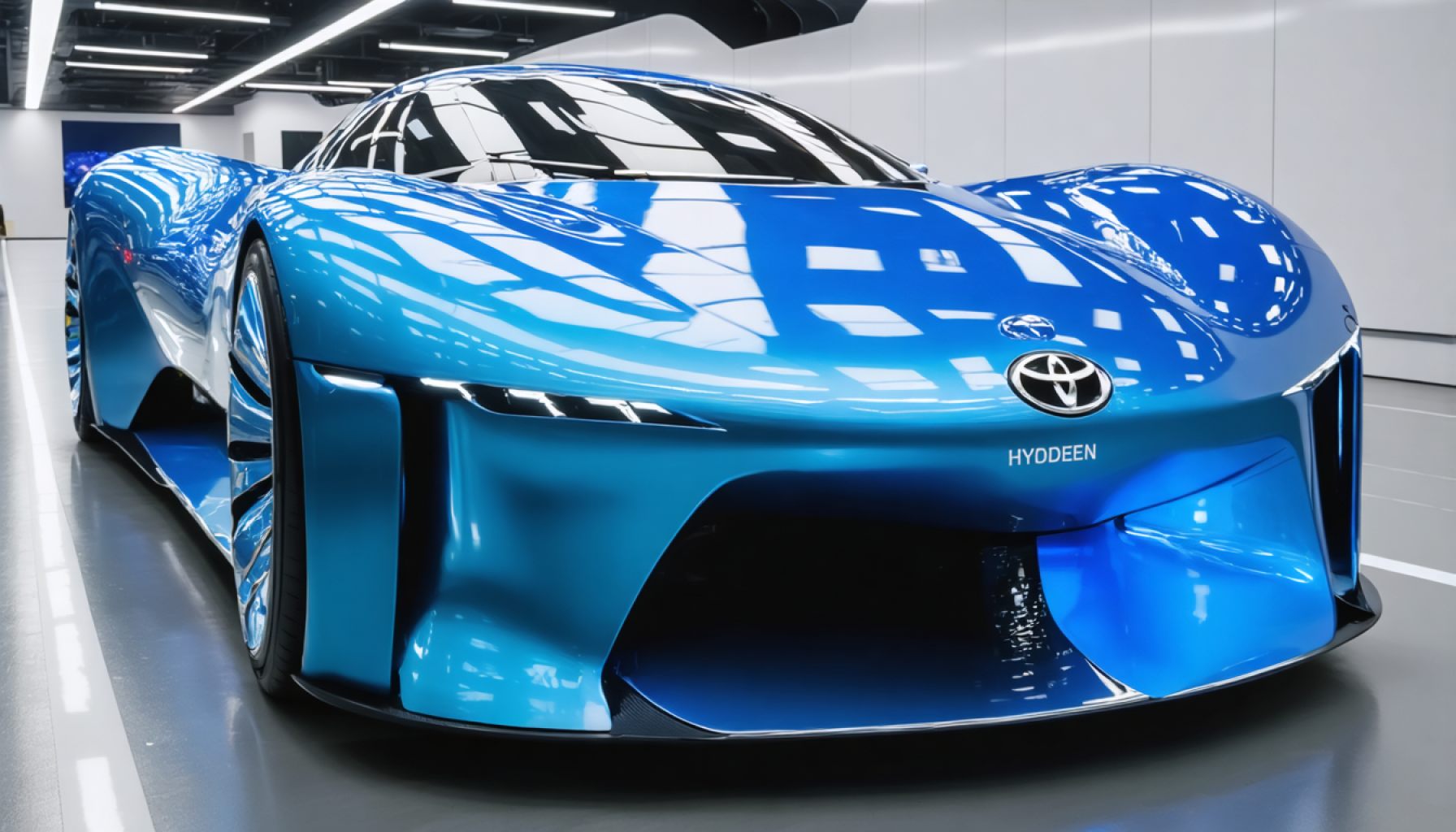- Toyota unveils its third-generation hydrogen fuel cell system, highlighting its commitment to sustainable automotive innovation.
- The new system offers 1.2 times the fuel efficiency of its predecessor, enhancing the vehicle’s cruising range by 20%.
- Compared to traditional technologies, this system rivals diesel engines in durability and performance without relying on fossil fuels.
- Maintenance concerns are minimized, as the system operates seamlessly, reducing the need for frequent upkeep.
- This innovation embodies a crucial step towards achieving an emissions-free transportation future, aligning with global sustainability goals.
A shimmering future beckons on the horizon of automotive innovation. Picture this: a world where vehicles cruise silently through city streets, releasing nothing but the whispers of purified vapor into the atmosphere. Toyota, a stalwart pioneer in the industry, manifests this vision with an ambitious leap—its third-generation hydrogen fuel cell system.
Unveiled with flair at Tokyo’s H2 and FC EXPO, this technological marvel promises not just reduced emissions, but a seismic shift in how we perceive vehicle durability. Comparable now to the stalwart diesel engines that dominate commercial sectors, Toyota’s latest creation ditches fossil fuels while offering unwavering performance.
Imagine the meticulous dance of hydrogen molecules, transforming within this system to power a vehicle with 1.2 times the fuel efficiency of its predecessor. This enhancement—a beacon of engineering prowess—grants a 20% increase in cruising range, allowing for longer journeys devoid of frequent stops. Gone too is the worry of tedious maintenance; Toyota assures the system functions seamlessly, painting a future where upkeep becomes an afterthought.
As the world grapples with the urgent need for sustainable solutions, Toyota’s relentless pursuit of innovation leads us to a crossroads of practicality and environmental stewardship. With this hydrogen fuel cell system, dreams of an emissions-free future accelerate towards reality, challenging us to redefine our relationship with transportation.
Revolutionary Advances in Hydrogen Fuel Cell Cars: What You Need to Know Now!
How Hydrogen Fuel Cells Power the Future of Transportation
Hydrogen fuel cell technology has emerged as a game-changer in the automotive industry, offering a transformative potential for eco-friendly transportation. Toyota’s third-generation hydrogen fuel cell system—unveiled at Tokyo’s H2 and FC EXPO—not only promises reduced emissions but also sets a new benchmark for vehicle durability and efficiency.
Here’s a closer look at the implications, advantages, and challenges of this innovation in the context of sustainable automotive solutions.
How-To Steps & Life Hacks: Understanding Hydrogen Fuel Cells
1. Basic Functionality: Hydrogen fuel cells generate electricity through a chemical reaction between hydrogen and oxygen, producing only water vapor as a byproduct, which is expelled as exhaust.
2. Refueling: Hydrogen fuel cell vehicles (FCVs) refuel similarly to traditional gasoline cars, taking about 3-5 minutes—significantly faster than charging a purely electric vehicle (EV).
3. Maintenance: Unlike internal combustion engines, hydrogen fuel cells have fewer moving parts, reducing maintenance complexity and costs.
Real-World Use Cases
– Public Transport: City transportation systems, such as buses and taxis, benefit significantly from hydrogen fuel cells, offering lower emissions and noise pollution.
– Logistics and Fleets: Commercial trucks and logistics fleets are particularly well-suited to hydrogen technology due to their need for extended ranges and quick refueling.
Market Forecasts & Industry Trends
The hydrogen vehicle market is poised for growth. According to the International Energy Agency, the number of hydrogen fuel stations worldwide is expected to increase, supporting widespread adoption of this technology. Analysts predict that by 2030, hydrogen could provide 18% of the world’s total energy needs (IEA).
Features, Specs & Pricing
– Fuel Efficiency: Toyota’s system is reported to be 1.2 times more fuel-efficient than previous models.
– Cruising Range: A 20% increase in range enhances vehicle usability, reducing the frequency of refueling stops.
– Cost: Initially, hydrogen vehicles are expected to have higher upfront costs compared to traditional vehicles, but prices are projected to decrease as technology matures.
Security & Sustainability
Hydrogen production and distribution carry unique safety considerations, with hydrogen more challenging to store and transport due to its flammability. However, ongoing advancements in safety protocols are making hydrogen a more secure energy source.
Sustainability-wise, the advantage of zero emissions at the point of use makes hydrogen compelling for environmental goals. The focus remains on producing green hydrogen from renewable sources to enhance overall sustainability.
Pros & Cons Overview
Pros:
– Zero-Emission Output
– Fast Refueling
– Longer Cruising Ranges
Cons:
– Current Infrastructure Limitations
– High Initial Costs
– Energy-Intensive Hydrogen Production
Actionable Recommendations
1. Invest in Infrastructure: Support policies and initiatives that expand hydrogen refueling stations.
2. Stay Informed: Keep abreast of advancements in hydrogen production technologies, especially green and blue hydrogen.
3. Evaluate Needs: For fleet owners, consider hydrogen FCVs for their potential to reduce overall carbon footprints while meeting logistical demands.
Conclusion
Hydrogen fuel cells present an exciting frontier in the quest for sustainable transportation. Through continued technological improvements and infrastructure investment, the potential for hydrogen to significantly impact the automotive sector is immense. As Toyota and other pioneers lead the way, stakeholders must align efforts to capitalize on this promising technology.


